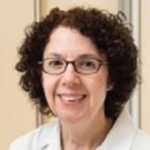
TippaPatt / shutterstock.com
Like the medical profession itself, the education of doctors serving in rheumatology fellowships across the nation marches on despite the unexpected hurdles posed by the COVID-19 pandemic.
Practice Changes
“The pandemic has changed the way our fellows see patients; we are now seeing almost all patients using telemedicine,” says Bonita Libman, MD, FACR, FACP, fellowship program director for the Division of Rheumatology and Clinical Immunology at the University of Vermont Larner College of Medicine, Burlington.
Similar scenarios are playing out across the nation as fellowship trainees adjust to fewer in-person visits and hold many more consultations via telephone or video communication. Program directors and their trainees continue to care for patients while navigating governor-issued, stay-at-home orders and the need for six feet of physical distance between people to limit spread of the virus.
Training Changes
For didactic education, faculty and students still meet, but not in person. Many professors use the Zoom platform to conduct online lectures and conferences, often with students viewing from the comfort of their own homes.
“This [approach] worked out very well,” says Dr. Libman. “In fact, we had more participation in virtual conferences than when people had to show up for them in person.”
Other fellowship directors say they too have seen lecture attendance increase since it became necessary to move didactic education out of the traditional classroom and into online video rooms. Often, it’s easier to open a laptop from home and get right to it—no driving, traffic jams or other distractions.
“Our lecture series has, thankfully, been relatively preserved despite the COVID-19 pandemic,” says Jason Kolfenbach, MD, associate professor of medicine and rheumatology fellowship program director at the University of Colorado Anschutz Medical Campus, Aurora. “We were kind of set up for that because we have a faculty member in our division, Duane Pearson, MD, who has [already] been using the Zoom platform for education of primary care providers in rural areas.”
Online Training Challenges

Dr. Libman
Starting on March 11, all weekly lecture series transferred to Zoom for Dr. Kolfenbach’s fellowship program, which covers a three-hospital system stretching across the Denver metropolitan area.
“The biggest change for us has been the clinical training,” says Dr. Kolfenbach, noting that his rheumatology trainees have various specialty rotations and some have been stopped as a result of pandemic pressures and priorities.
“The pulmonary division is knee deep in the clinical management of hospitalized and ventilated patients, and our surgical colleagues in orthopedics have stopped elective procedures. So the ability of some specialties to remain engaged with these outpatient clinics is less than it used to be,” says Dr. Kolfenbach.
“Obviously, we are trying to be respectful of that, and as a result we’ve hit the pause button on some of these clinical rotations,” he notes. “In the rheumatology clinic, our volume has dropped some, as well. We’ve converted probably 90% of outpatient visits to telemedicine, reserving in-person visits for those who still require the traditional face-to-face encounter.”
Kristine M. Lohr, MD, MS, professor of medicine, rheumatology division chief and director of the rheumatology fellowship program at the University of Kentucky School of Medicine, Lexington, says the new social distancing rules mean she is the only one in the rheumatology office most of the time. Conferences initially held in large rooms to accommodate physical separation quickly shifted to video communication on Zoom.
“Our fellows stay home to study, except for the fellow on call for inpatient consults or weekends. We appreciate the ACR’s ViRL conferences and Dr. Jack Cush’s RheumNow [presentations],” Dr. Lohr says.
“What the fellows miss is the opportunity to do procedures, [because] patients aren’t coming in for visits,” she says. “The number of COVID-19 patients in our hospital has not reached the point [at which] providers and staff are being called into service.”



